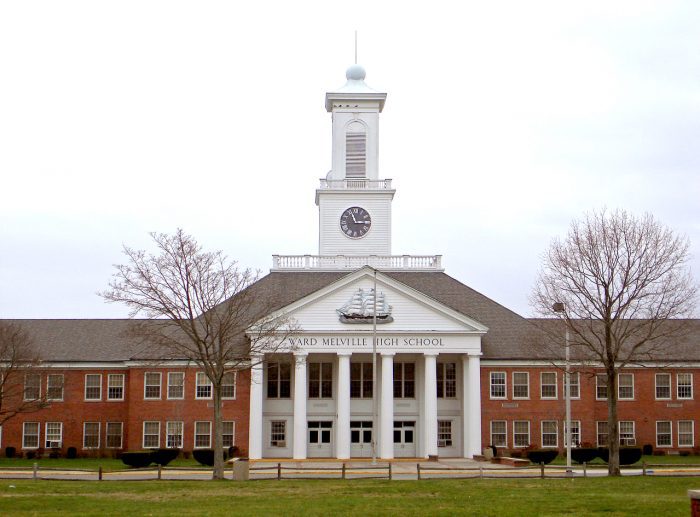Three Village Schools administration optimistic about state funding
By Mallie Jane Kim
After weeks of advocacy, Three Village Central School District is planning its budget as though proposed drastic cuts in state funding won’t happen.
Administration officials expressed optimism during a preliminary budget discussion at a March 6 Board of Education meeting, stating they plan to create the 2024-25 school year budget based roughly on current state aid numbers, as opposed to incorporating the nearly $9 million in cuts the district would receive under Gov. Kathy Hochul’s (D) state budget proposal.
“I’m fairly confident we’re going to get [funding] restored,” said Superintendent of Schools Kevin Scanlon while sharing that he had just returned from a few days lobbying in Albany. “Whether or not we get an increase, that stands to be seen. Until we receive confirmation of that, I think we should proceed cautiously.”
Deputy Superintendent Jeffrey Carlson agreed, adding, “That does not mean we don’t plan for that kind of thing going forward, whether it be next year, the year after, the year after that.”
Part of Hochul’s rationale in presenting the budget was realigning state school funding to reflect declining enrollment in certain districts. Affected districts pointed to extreme inflation in recent years, and also said it would be an overwhelming burden to force school districts to absorb in one year cuts based on a decade’s worth of enrollment decline.
Freshmen board members Karen Roughley and David McKinnon, who ran for the board in part to push for more advanced budget planning, both encouraged the district to consider options to fundamentally make district spending more sustainable, such as repurposing a school.
“Infrastructure costs money,” McKinnon said, explaining that district costs are rising faster than its income. “It’s one of the first things businesses do — we’re going to have to cut down on how much infrastructure we’re trying to maintain. There’s no way around that.”
Roughley agreed. “We need to make sure that we are preparing for things to be reduced every single year, because it’s going to happen,” she said.
Administration officials previously estimated the cost savings of $1.1 million for repurposing one of the district’s five elementary schools, but during the public comment section of the board meeting, resident Carmine Inserra questioned that figure. “I feel it’s probably more than that if you include the benefit of combining programs at less schools, which offers efficiencies at dividing students among teachers, rooms and transportation,” said Inserra, who leads the Residents for Responsible Spending group in the district. “It’s far more savings than just turning down the heat.”
Inserra also called out the district administration and board for “ignoring” declining enrollment for years and for neglecting to give enough information and authority to its Budget Advisory Committee, a group of stakeholders that advises the board on the budget plan.
“The BAC meetings have turned into sales presentations from the district admins on what their departments do and the successes they’ve had,” said Inserra, who served on the BAC a few years ago and said he watches the meetings even though he was not selected this year. “Have you given them any projected expenses and income for the coming years? Have you explained to them how expenses are affected by contractual [teacher] salary and benefit increases?”
For his part, Carlson defended the BAC presentations, saying he felt the committee would be more equipped to make good recommendations if they understand where the money is going, rather than looking at a line item on a page.
Scanlon noted that much of the district’s rising costs are out of the administration’s control, such as increases in transportation contract costs and unfunded mandates from the state, like the one to switch to electric school buses by 2035. But the district is still watching for ways to be more cost-effective, he said, and pointed to one expected area of savings — teacher retirements. More than half the district’s teachers are “very senior” with about 26 years of experience, according to Scanlon, who anticipates 117 teacher retirements over the next four years.
“That is a significant brain drain to our community,” he said. “We’re going to lose a lot of highly-qualified teachers, but at the same time it’s going to be a cost savings.”
Carlson, who heads up the budget planning process and presented the preliminary 2024-25 budget, said that the district can make reductions in next year’s plan as needed once real state aid numbers come in, to stay within the district’s tax cap.
The state’s budget is due by April 1, though last year it didn’t land until May. That timing makes it hard for school districts, which need to have budgets ready for public review between April 30 and May 7. In Three Village school district’s timeline, that means the board needs to adopt its budget at the April 3 meeting.







